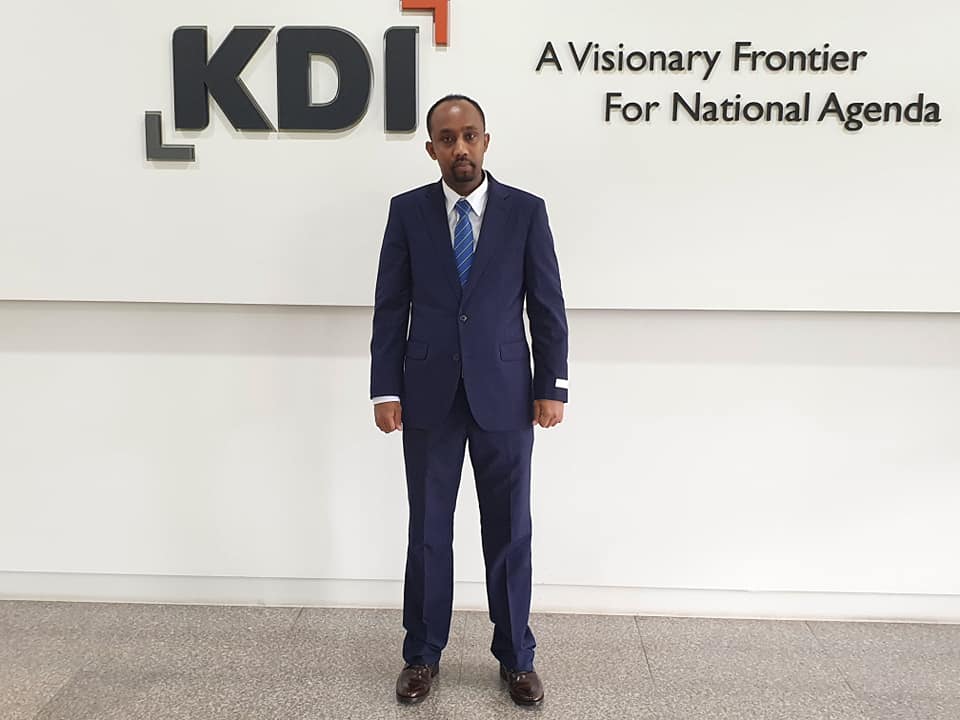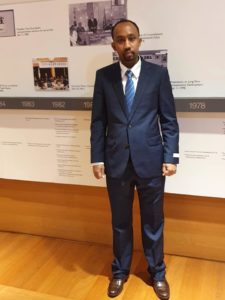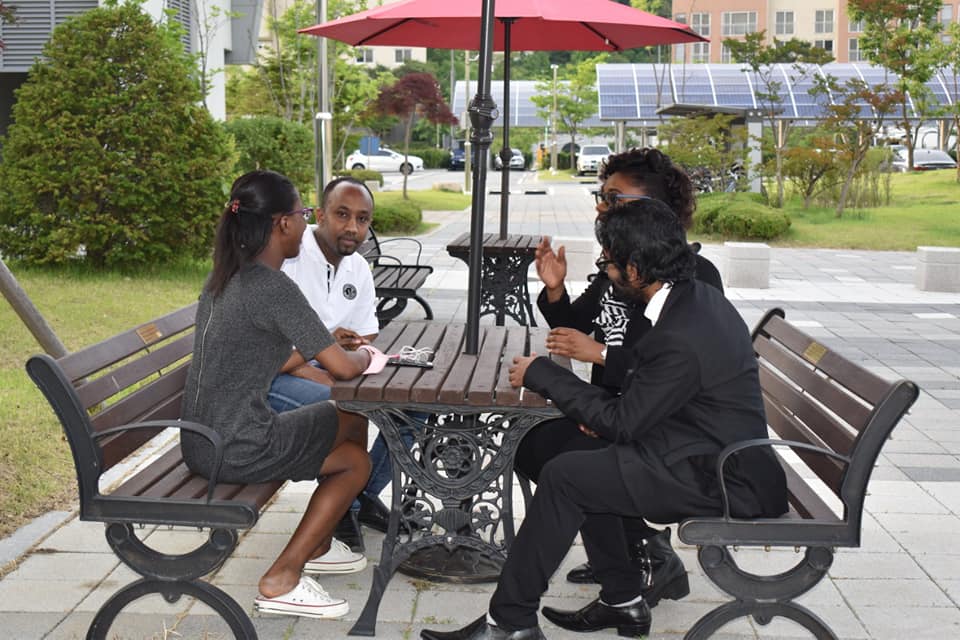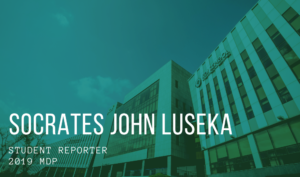
Life after KDIS: From the Horn of Africa
- Date 2021-07-08 05:29
- CategoryStory
- Hit1595
Mr. Anwar Bashir is a practicing journalist from Somalia and an alumnus of the KDI School. While at KDI, he served as the head of the Muslim community and engaged in journalism as a student reporter. Several events have taken place in his life since his 2020 graduation, notably, his appointment as a lecturer at Somali National University. In addition, his SRP was one of the most outstanding ones. I caught up with him and had the following conversation.

Q) Could you briefly introduce yourself?
My name is Anwar Abdifatah Bashir. I am an author and freelance journalist. I am well known for my commentaries and analysis on issues emanating from the horn of Africa, especially in Somalia and Ethiopia. Above all, I am a KDI School alumni (MPM class of 2019).
Q) How is Anwar post KDI School different from Anwar before KDI School?
What can I say? Well, before KDIS my writing and analytical focus were limited to politics in the Horn of Africa. My KDIS graduate concentration, Global Governance and Political Economy, expanded my scope and horizon. I became more aware of and knowledgeable about global governance. As such, my work has now taken a global approach.
Q) Has the KDI School experience influenced your journalistic approach?
Of course. I took the Academic Writing course one semester and it shaped my writing in many ways. It was quite an interesting course, and I learned a lot, especially about citations, references, and writing styles like APA. So the pieces I started writing after KDIS became well-structured and more academic.
Q) Well, your SRP was selected as one of the best during 2020’s graduation class. Please tell us a bit about that.
I was over the moon when the school informed me that my SRP was among the outstanding ones in 2020. I think a lot of factors contributed to that but central was my advisor, Prof. Chang-yong Choi, whose guidance, and support played a big role. My research examines the challenges of Somalia’s federal architecture ¾ a system of governance that it did adopt in 2004.
played a big role. My research examines the challenges of Somalia’s federal architecture ¾ a system of governance that it did adopt in 2004.
So far, I have shared the research with key academic institutions and think tanks and have received their appreciation. I further plan to share the research with other key public institutions like the federal parliament, state parliaments, and the Ministry of the Interior, Federal Affairs and Reconciliation. I also plan to participate in TV and radio talk shows that navigate around the country’s federalism.
Q) There is a reason why your research was ranked one of the best. Plus, several of your articles are widely read in your country. Any secrets? Any writing tips that you would share with ongoing students, budding writers, or researchers?
I think the primary reason behind my SRP ranking among the top in 2020 is my topic was quite relevant and timely. I was also familiar with the necessary writing skills. Additionally, my supervisor was a genuinely good mentor. Not only did he help in polishing my ideas but he also gave me the leeway to be myself. That helped a lot.
As for writing and the tips that I can give, maybe the readers can pick up something from my experience. Well, right from my undergraduate days at Mogadishu University while studying for my journalism degree, I remember studiously writing small paragraphs and sharing them with lecturers and colleagues. Moreover, I would listen to radio programs and watch TV broadcasts. Throughout the journey, I acquired a tremendously large English vocabulary. That experience informed the quality of my writing.
In 2017, I officially started writing academic pieces and got my work published in a plethora of renowned institutions like the Aljazeera Center for Studies, the Nation Media in Kenya, Somali times, Hiiraan Online, Jowhar News Leader, and plenty of others.
Q) You are now a lecturer at Somali National University. Tell us a bit about your position.
Yes, I am a lecturer at Somali National University (SNU), the leading public university in Somalia. I joined them in November last year. I am based in the faculty of Social Sciences, within the Political Science Department.
Q) What do you miss the most about KDI School?
I miss a lot ¾ my former classmates, colleagues, and professors. Among the professors that I particularly miss are Prof. Chang-yong Choi, Prof. Lisa Lim, and Prof. Kim, Dong-Young. Their styles of teaching and the accompanying discussions were impeccable and borderline special. I remember how they would stimulate the class discussions and effectively guide us along. It was amazing. I find myself recommending their courses to my country-mates at the school and to anyone that I know.

Q) How does the future look like for Anwar?
The future is bright. First, having published a book not long ago entitled, “Horn of Africa Geopolitics with especial consideration, the Somali region in Ethiopia,” I am keen on writing and publishing more. I have therefore been writing a lot lately for the plan to come to fruition.
Second, I intend to continue learning until I have a PhD. So watch that space. Third, I have political ambitions. Sooner or later, I will join politics to serve my people and contribute to the development of my country. While I’m at it, I intend to strengthen and enrich the diplomatic ties between my country, Somalia, and South Korea.

Related News
-
Story808 days ago
KDI School Bookshelf #1: Book Recommendations by Alumni -
Story835 days ago
Establishment of Botswana Alumni Association#Alumni #Alumni Gathering #kdi #KDI school #kdischool #Alumni Association #botswana
-
Story839 days ago
Letters from the New Alumni Association Representatives#Interview #Alumni #kdi #KDIS #Kazakhstan #KDI school #kdischool #Alumni Association #Cameroon #message #australia #madagascar #russia #sierra leone #zimbabwe
